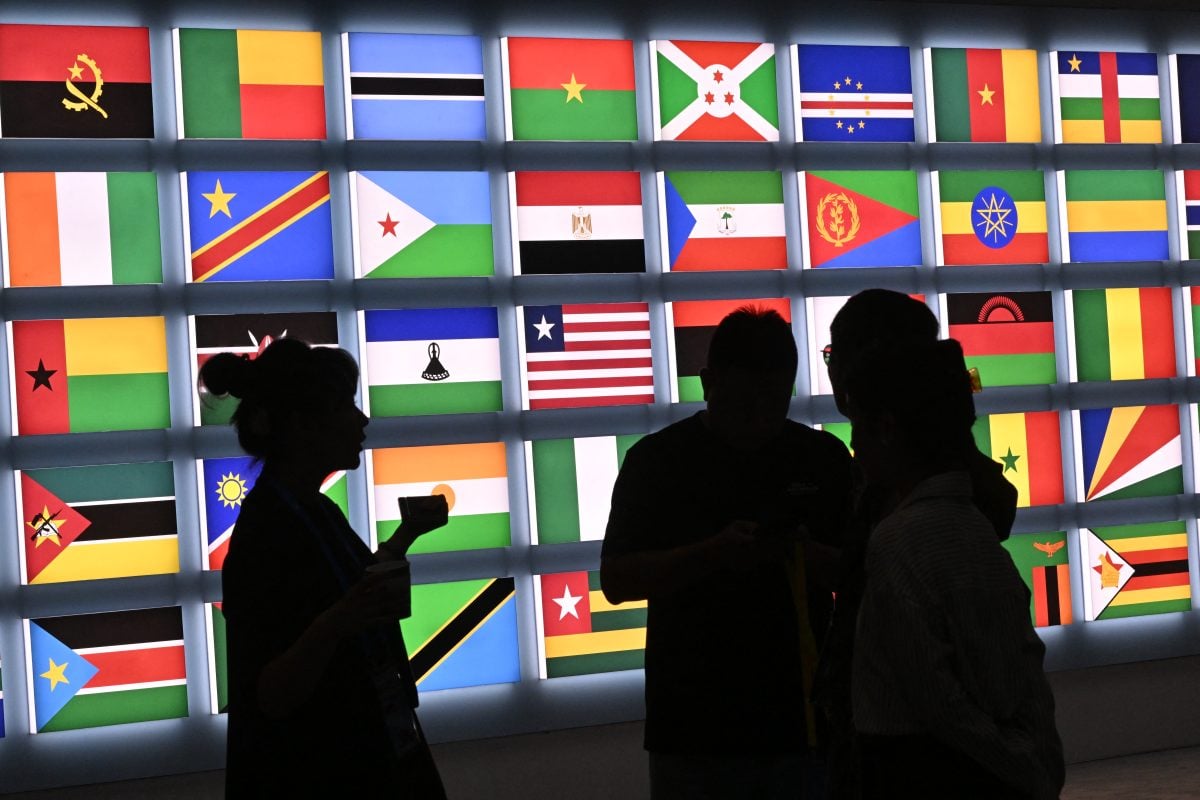October’s Global Africa Summit did not feel like a conference held in the shadow of geopolitical headwinds. If anything, it felt like a market opening. In a packed hall just off Washington DC’s Michigan Avenue, investors, founders and policymakers spoke less about what the US might do next in Africa and more about what they intend to do together – mobilise diaspora capital, scale essential infrastructure, and turn policy uncertainty into deal flow.
“The opportunities are endless when you ignite the diaspora,” said former US Department of Commerce official Terri Batch, who now heads Los Angeles investment promoter GlobalLA.
“Business always finds a way. If Washington steps back, it creates space for entrepreneurs and diaspora investors to step forward. Africa is the future – and it’s not even the future, it’s now.”
That future-minded pragmatism ran through the day.
Speakers acknowledged the disruption created by the current US political climate – from a more inward focused Washington (the administration will be skipping the G20 meeting in Johannesburg in November and has fallen out with hosts South Africa) to the ending of the tariff-free African Growth and Opportunity Act (AGOA), But they insisted that the diaspora still has plenty of opportunities to invest in Africa.
Diaspora dollars as catalytic capital
If one idea animated the summit, it was that the world’s largest, wealthiest and most institutionally networked African diaspora lives in the United States – and that this constituency can be a catalytic “first mover.”
It is estimated that the African diaspora in the US is over 43 million people, based on census data which counts those who identify as black (either alone or in combination).
“If the US wants to compete with China in Africa, start by recognising the obvious: America has the world’s greatest African diaspora – resilient, successful, deeply networked,” argues John Morris, whose firm Intentional Asset Management (a subsidiary of 17 Asset Management) is launching a Caribbean food systems fund while mapping Africa opportunities.
“Why wouldn’t you do everything possible to back 15% of your own population to be the lead partners in the continent that can feed the world and generate the next waves of innovation?”
“We should want the African diaspora to be the ones who make the money first. Because of the cultural affinity and connectivity – and as a slowing back of centuries of extraction – the people who should be the owners of the growth are the diaspora.”
Morris does not sugar-coat the challenges.
“Large, sustained flows from developed markets into African public equities haven’t really happened since before the 2008 crisis,” he said. Since then, major US institutions have preferred domestic alternatives.
Yet that is precisely why he sees comparative value building on the continent.
“On demographics, urbanisation and the need for investable infrastructure across twelve essential service sectors – health, water, transport, agri-food systems – Africa stacks up. If you assess the valuations with discipline, the next 10–15 years should see African markets outperform developed markets.”
Still, demand doesn’t materialise by slogan. Morris says there needs to be research that makes countries and sectors intelligible to mainstream savers; advisors and products that fit those findings; and efficient product distribution to diaspora investors.
“If you want this to move from panel talk to pipeline, organise the demand,” Morris said.
“Create the research, the advisors, the products. Let middle-class savers allocate 10% now and grow that to 30–50% as performance shows up. Do that, and you’ve changed the continent’s cost of capital.”
“No one will build this unless the diaspora – historically black colleges and universities, chambers, professional associations – say, ‘We want it. We’ll get behind it.’ That’s the project,” he said.
Remittance resurgence
Jane Osei, head of the African Investment Network, highlighted what she said was one of the continent’s lesser-understood resources: diaspora remittances.
“The World Bank counted over a hundred billion dollars in remittances to Africa last year — more than FDI and aid combined,” Osei said.
“Even five or ten percent directed into professionally managed diaspora funds could move the needle in energy, water, healthcare and agribusiness.”
Osei is blunt about the practical frictions that still slow bilateral business.
“Under the current climate, it has become harder for African entrepreneurs to even get into the US market — to attend conferences, meet partners, close deals. You can’t trade if you can’t travel,” she noted.
But she rejects fatalism.
“We’re building the rooms where the right people actually meet. Our job is access – to information, partners and markets.”
Unlocking opportunities
Morris said that huge diaspora investment opportunities are likely to arise if the right investment mechanisms can be established.
“If the US wants to compete with China in Africa, start by recognising the obvious: America has the world’s greatest African diaspora — resilient, successful, deeply networked. Why wouldn’t you do everything possible to back 15% of your own population to be the lead partners in the continent that can feed the world and generate the next waves of innovation?”
Osei says that requires governments to set the right tone when it comes to policy and regulation.
“Boosting investor confidence is a policy choice. Clear legal frameworks, predictable banking rules, the ability to repatriate funds — those are fixes within reach. When governments and business co-design incentives, both sides win.”
While that may be some way off, Batch says the tough political climate and the ending of AGOA call for new ties that depend more on an appreciation of African needs. Here, the US diaspora might be well placed to contribute.
“Eliminating or shrinking legacy aid channels creates anxiety, yes — but it also forces a reset,” she said.
“African firms and governments are focusing inward: industrialising, building capacity, and partnering on trade, not aid. If the US wants to compete with other major economies on the continent, it will have to engage on those terms.”
Want to continue reading? Subscribe today.
You've read all your free articles for this month! Subscribe now to enjoy full access to our content.
Digital Monthly
£8.00 / month
Receive full unlimited access to our articles, opinions, podcasts and more.
Digital Yearly
£70.00 / year
Our best value offer - save £26 and gain access to all of our digital content for an entire year!

 Sign in with Google
Sign in with Google 



